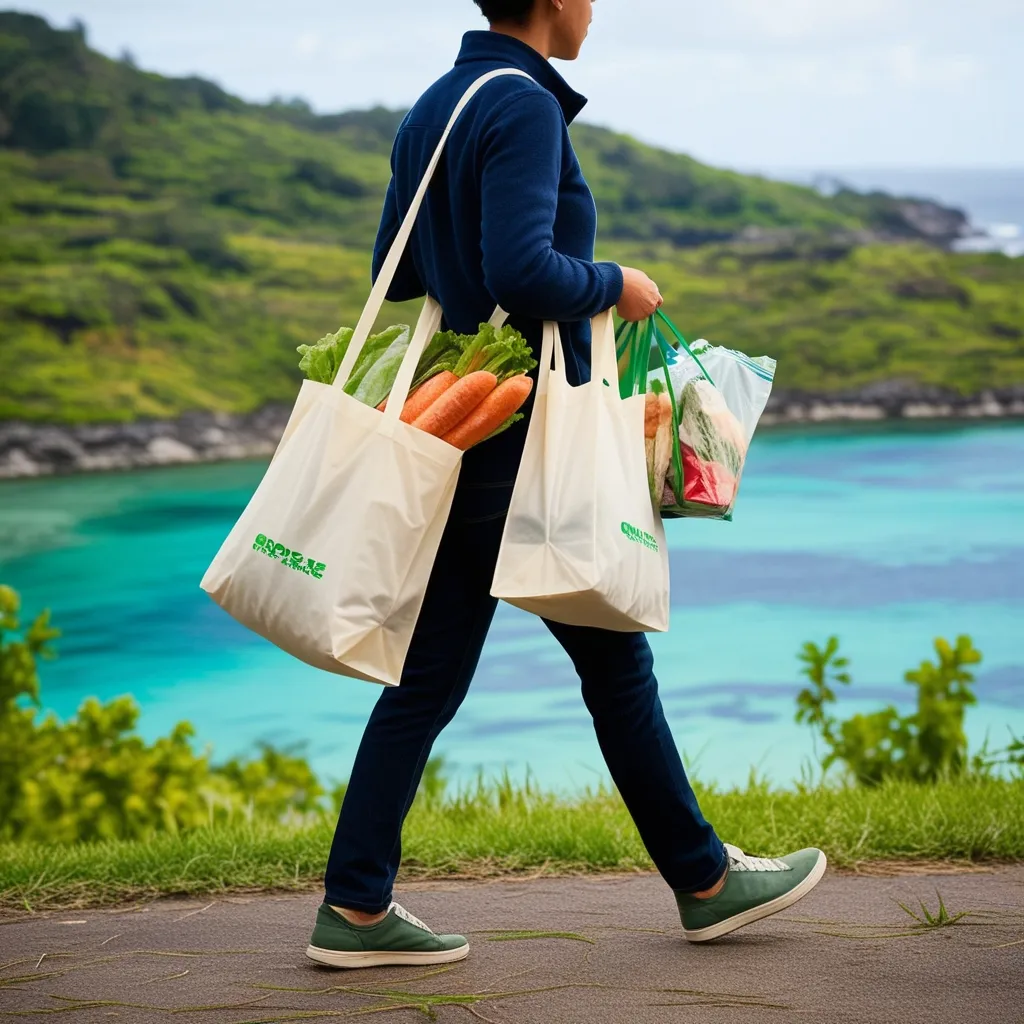In a world where we’re getting more aware of how our choices affect the environment, simple habits can make a huge impact. One of the easiest and most effective habits to adopt is using reusable shopping bags. This little change can go a long way in cutting down plastic waste and conserving our planet.
Plastic bags might seem harmless, but they’re a huge problem. They’re everywhere and their numbers are alarming. We produce hundreds of millions of tons of plastic every year, and a big chunk of this goes into making single-use plastic bags. These bags are made from non-renewable resources like natural gas and crude oil, which means we’re depleting our precious resources for something we use once and then throw away. Plus, they’re not biodegradable. They can take hundreds of years to decompose, filling up landfills and polluting our oceans.
Switching to reusable shopping bags is a no-brainer. It’s simple, and it can massively reduce plastic waste. Whenever you use a reusable bag, that’s one less plastic bag ending up in a landfill or the ocean. By doing this, we’re not only saving resources but also cutting down the pollution caused by plastic bags.
Another great thing about reusable bags is that they can save you money. Sure, buying a reusable bag might be a bit more expensive initially than grabbing a pack of plastic bags, but it pays off in the long run. These bags are durable and you can use them countless times, eliminating the need to buy new bags repeatedly. In some places, there’s even a charge for using single-use plastic bags, which can add up over time.
Reusable bags are also fantastic when it comes to protecting wildlife. Plastic bags are a serious threat to animals. Many creatures mistake these bags for food, leading to choking, strangulation, or poisoning. By choosing reusable bags, you’re helping to prevent these awful incidents and protect animals from the dangers of plastic pollution.
On top of all that, reusable bags can help you keep your space clutter-free. Unlike plastic bags, which can pile up and take valuable storage space, a few reusable bags can be easily stored and reused. It’s a small step towards a cleaner and more minimalist lifestyle.
To make using reusable bags a no-brainer, keep them handy. Store them in convenient places like your car, near the front door, or in your handbag. That way, you’ll always have one ready when you go shopping. Develop a routine of putting them back in their spot after unpacking your groceries. This will help you remember to take them with you the next time you shop. Don’t forget to clean them regularly to keep them hygienic. Most fabric bags can be tossed in the washing machine, and plastic ones can be soaked in soapy water. This ensures they stay clean and safe to use.
Sometimes we might forget our reusable bags, but there are creative ways to avoid using plastic. For example, you can use an empty cardboard box from the supermarket, or repurpose old fabric to make your own bags. The Boomerang Bag movement is a cool example of communities coming together to create and share reusable bags made from repurposed materials.
The impact of using reusable bags can go beyond just personal habits. When communities adopt this practice, it can encourage businesses to step up their sustainability game. Consumer pressure can result in significant changes, including the banning of single-use plastic bags in many areas. It’s a reminder that our collective actions can lead to big changes.
If you live in a place where single-use plastic bags are still common, getting involved with local advocacy groups can be a powerful way to push for change. Petitioning your local government to ban single-use plastic bags can have a big impact.
Using reusable shopping bags is a simple, yet impactful way to reduce plastic waste. By making this change, you save money, declutter your space, protect wildlife, and help keep our oceans and landfills free from plastic pollution. So next time you head out to shop, don’t forget your reusable bag. It’s a small step that makes a big difference.






